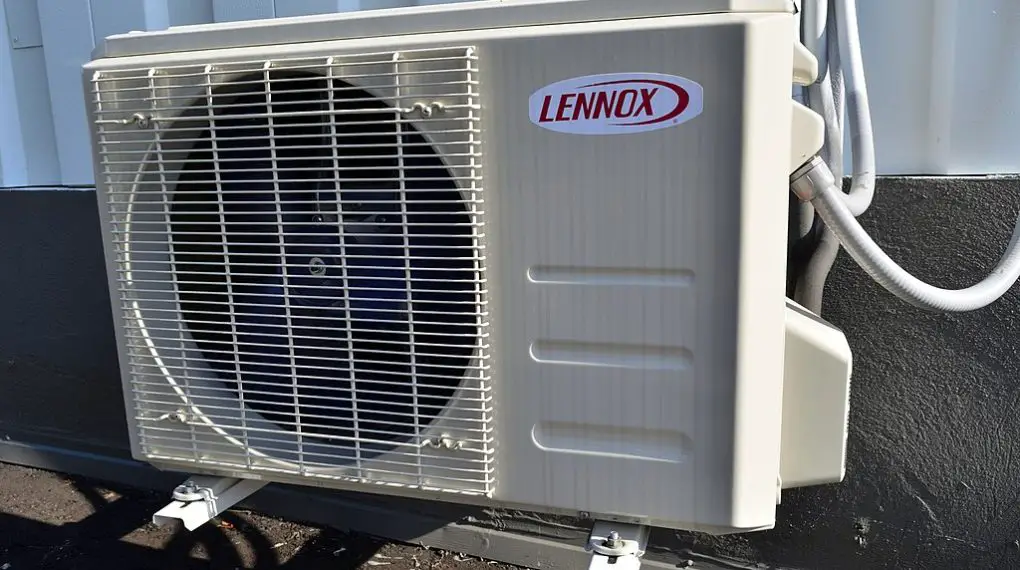If your AC compressor will not shut off, this in-depth guide is designed to walk you through the potential causes and solutions in detail.

Table of Contents
Common Causes Why an AC Compressor Will Not Shut Off
The continuous running of an AC compressor can be attributed to several causes. These range from simple fixes to more complex issues that might require professional attention. Some of the most common causes include:
Thermostat Issues: The thermostat is the command center for your AC. If it’s malfunctioning or improperly set, it could fail to signal the compressor to turn off.
Stuck Relay: The relay is an electrical switch that controls power to the compressor. If it’s stuck, it could keep the compressor running continuously.
Refrigerant Problems: The refrigerant is crucial for the cooling process. If its levels are too low or there are leaks, it can cause the compressor to overcompensate by running non-stop.
Dirty Condenser Coils: These coils release heat from your home. If they’re dirty, the system becomes inefficient, possibly causing the compressor to run longer than necessary.
Other Issues: Additional factors like faulty sensors, electrical problems, or a failing compressor can also lead to this issue.
AC Compressor Will Not Shut Off Solutions
If your AC compressor will not shut off, try the following to fix it:
Checking the Thermostat
The thermostat controls the operation of your AC. When troubleshooting:
Ensure it is set to ‘cool’ mode and the temperature setting is lower than the current room temperature.
Check if the thermostat is responsive. Adjust the temperature and observe if the AC reacts.
Examine for any loose connections, dirt, or battery issues if it’s a digital thermostat.
Try resetting the thermostat or replacing the batteries if it’s unresponsive.
If you’re using a programmable thermostat, verify that the schedules are set correctly.
If the issue persists, consider replacing the thermostat or consulting a professional for a more thorough inspection.
Inspecting the Relay Switch
The relay switch controls the power supply to your AC compressor. When inspecting the relay:
Ensure the power to the AC unit is completely off to avoid electrical hazards.
Locate the relay switch in the electrical panel of the outdoor unit. Refer to your AC’s manual for specific location details.
Inspect the relay for signs of damage, burning, or sticking. A relay that doesn’t move freely may be the culprit.
Test the relay using a multimeter to check for continuity. If the relay shows no continuity or is constantly closed, it needs replacement.
If you don’t have a multimeter, you can get this AstroAI Multimeter Tester from Walmart.
Replacing a relay switch can be a complex task and may require professional skills.
Evaluating Refrigerant Levels
Refrigerant levels are critical for the efficient operation of your AC. When evaluating:
Understand that checking refrigerant levels typically requires specialized gauges and should be done by a professional.
Low refrigerant levels can cause the compressor to overwork, leading to continuous running.
Signs of low refrigerant include ice formation on the refrigerant line, hissing sounds, or reduced cooling efficiency.
A professional can check for leaks, repair them if necessary, and recharge the system with the correct amount of refrigerant.
Cleaning Dirty Condenser Coils
Condenser coils play a vital role in expelling heat from your home. For cleaning:
Turn off the power to the outdoor unit for safety.
Remove any debris, leaves, or dirt surrounding the unit.
Use a soft brush or a coil cleaner to gently clean the coils. Be careful not to bend or damage the fins.
Rinse the coils with water after applying the coil cleaner, if appropriate.
Regular maintenance of the coils can prevent many issues and improve the efficiency of your AC system.
Check out these other articles…
Why AC Compressor Won’t Turn On: 8 Reasons & Easy Fixes
Why AC Compressor Gets Hot: 5 Common Reasons & Easy Fixes
Why AC Compressor Starts After 2-3 Minutes: Detailed Reveal
Why AC Compressor Takes Time to Start: Detailed Explanation
Why AC Compressor Stops After Few Minutes: 7 Causes & Fixes
When to Call a Professional
If after these steps your AC compressor still will not shut off, it’s time to consult a professional. Reasons to call a professional include:
Lack of experience or comfort in handling electrical components or refrigerants.
When the problem persists despite trying all the troubleshooting steps.
If there are signs of significant wear or damage to the system components.
Professional technicians have the tools, skills, and safety knowledge to diagnose and repair complex HVAC issues.